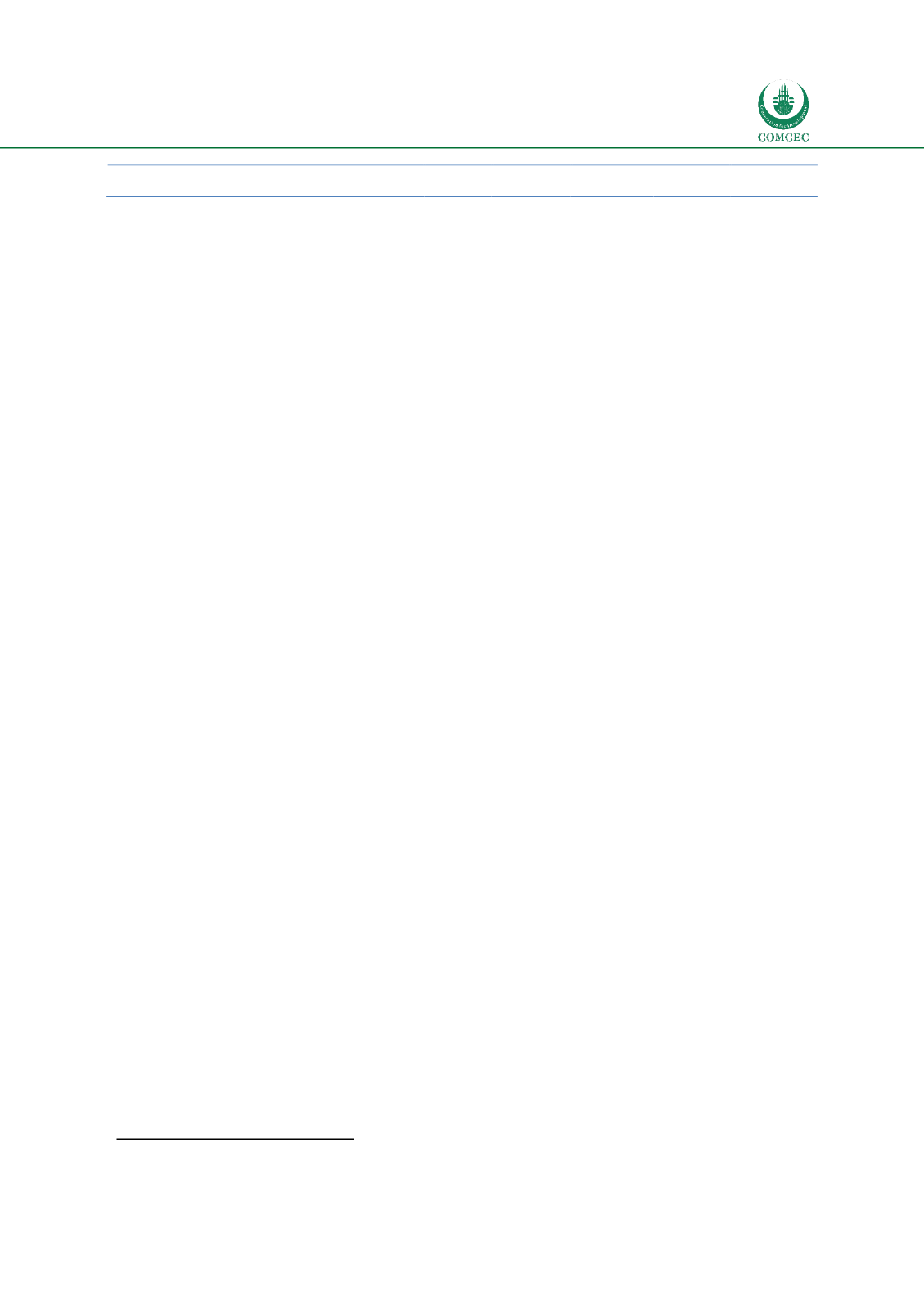

Muslim Friendly Tourism:
Regulating Accommodation Establishments
In the OIC Member Countries
47
MFT processes (admin, training etc.)
√
√
√
Source: DinarStandard
As the table shows, there are many common elements measured across MFT standards. It is
important to mention that there are a number of MFT elements that are only measured by
Turkey’s TS 13683, that have not been included in the table above, such as having an internet
content filter, anti-noise insulation for room, bathroom and prayer area, public wudu area,
reading room with Islamic literature, Friday prayers or transport to local mosque, modest
staff attire, Shariah-compliant code of conduct for staff and guests, traditional and Western
toilets on site, toilet not facing Qibla, pet management policies, and having Islam-appropriate
art, artists, posts, music, entertainment, etc.
All of the current MFT standards seem to acknowledge the importance of certifying Halal
food, which is a major concern for Muslim travelers as previous research studies have
indicated. Some MFT standards have adopted Halal food standards as part of their
requirements, which could be considered practical as well as a way to build on the strength
and recognition of well-established Halal food standards.
The basic limitation that all standards seem to share at this point is the low level of awareness
of MFT standards in general as illustrated by the results of both the consumer and the
accommodation surveys. A major weakness for some of the standards, which affects their
level of adoption, is the low level of involvement of the various stakeholders in developing the
standards. For voluntary MFT standards, a major flaw is their self-reporting strategy,
especially when coupled with a lack of auditing and inspections, since they can lose credibility
with consumers in case of inconsistencies between the expected and actual MFT services
provided.
3.5
Main challenges
There are a number of challenges facing the development of MFT standards, including the
different interpretations of “Halal” in the accommodation context according to madhabs and
level of practice, the different needs of Muslim and non-Muslim guests, the variations
between MFT and conventional quality standards requirements in some cases, and the
complexity of evaluating Halal elements in the hospitality industry due to its wide range of
constantly evolving products. Furthermore, the shortage of experienced inspectors, who are
well versed in the accommodation sector, poses a serious challenge to implementing the
standards once they are developed.
In terms of standard adoption, MFT standards, especially if voluntary, have a low rate of
adoption by accommodation providers. Many hotel operators are reluctant to adopt them out
of fear of alienating non-Muslim guests.
108
The cost of adding MFT services that certain
standards are measuring may also deter hotels from adopting an MFT standard. The
complexity of the procedures for adoption, implementation, and inspection can pose a
challenge for hotels seeking to become MFT certified.
108
Telephone interview for MFT Standards. 10 Oct. 2016.
















